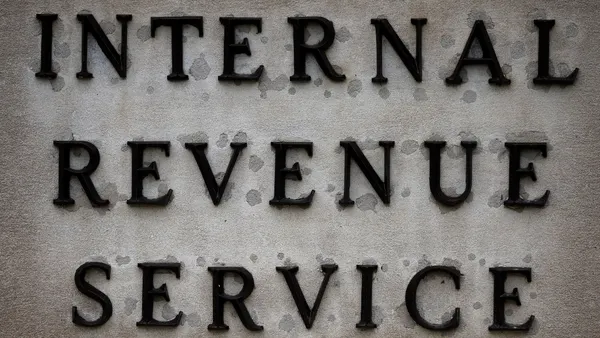As far as CFOs go, you’d be hard-pressed to find somebody with more experience than Debra Mason.
Mason has been working on the finance team in professional services for almost 30 years. In that time, she has served as the chief of finance for 10 — and soon to be 11 — companies. At two of these companies, her title was joint CFO-COO. She has worked everywhere from small tech start-ups to multi-billion dollar publicly traded companies, and she has witnessed the evolution of the CFO role firsthand.
“I figured early in my career that I like to fix things,” Mason told CFO Dive in an interview Thursday. “Fix things, turn things around, improve things, I quickly got a reputation for fixing things for companies, and then the opportunities followed.”
Many of her CFO jobs, Mason said, have been operationally focused, beyond the finance side, which is why she’s held the COO title a couple of times, she said. “I always want to move beyond just forecasting; I want to see how that’s applied to the business, and very different components of our revenue or expense. I like to go beyond the traditional finance function.”
The CFO role has evolved, and Mason sees the trajectory of the position clearly. “I think people are realizing that there are a lot of finance and CFO types [with] more to say than just what the finances look like,” she said. “When you can go beyond the finance side of things, you can actually be far more effective, because you can control more, and influence more across the board.”
She looks upon her two tenures as CFO-COO fondly, and sees the merged position as the future of the c-suite. “It’s starting to get to the point where [a separate CFO and COO] will often bump into each other,” she said. “I used to joke with other CFOs about how some of us are financial in nature, and some are more operational. I always prided myself on being on the operational side and being able to influence and understand the importance of that, and use it to improve a company’s financial worth and value.”
“I think people are realizing that there are a lot of finance and CFO types [with] more to say than just what the finances look like”

Debra Mason
CFO-COO
Mason acknowledges the substantial shift in CFO responsibilities since she started in the early 1990s. Today, “you have to be able to work on things outside the finance area, and have those departments reporting into you,” she said.
Mason lists groups that have reported to her in the past: ad ops, customer service, global outsourcing, IT, print publications, and many more. “I think the managers of those divisions are now seeing the value of being more closely connected to the CFO,” she said.
But some aspects of the CFO role have remained static, Mason said. “It all comes back to, at the end of the day, CFOs still having to understand everything to do with financial statements, and how to keep balance sheets clean and the company solid.” The difference is, and the thing that is now a requirement, she said, is the ability to really get out and work with the organization in a more direct and open fashion."
Mason cites dealing with customer service and growth or operational systems as “the lifeblood of what the company actually does.” And she cites the present as the best time to be a CFO.













